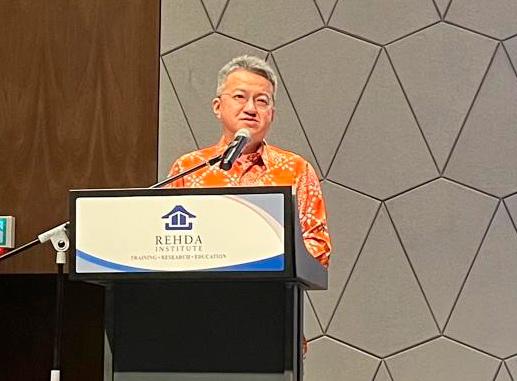KUALA LUMPUR: Malaysia’s position as a Tier 2 nation under the United States’ new artificial intelligence (AI) chip export restrictions is unlikely to impact existing data centres, said Deputy Investment, Trade and Industry minister (Miti) Liew Chin Tong.
He also said his administration will engage with the incoming US administration to understand the extent of the regulation.
“As far as we understand, it has no impact on the existing data center. But what sort of impact you will have on the future arrangement, we will wait to see,” he told reporters at the CEO Series 2025 Rehda’s Annual Property Developers Conference today.
Besides waiting to engage with the incoming US administration, Liew said, the government will engage with internal stakeholders.
“Noting that Malaysia is together with many other countries in Tier 2, there are ways to deal with it,” he said.
The outgoing Biden administration has introduced a directive aimed at maintaining the United States’ leadership in AI technology by enforcing restrictions on AI chip exports.
Under the regulation, countries are categorised into three tiers: Tier 1 nations, such as Japan and the United Kingdom, enjoy unrestricted chip access; Tier 2 nations, including Malaysia and Singapore, face certain limitations; and Tier 3 nations, like China and Russia, are completely barred from accessing US chip technology.
The directive aims to prevent Tier 3 nations from circumventing restrictions by using cloud computing services in other regions. To address this, US companies are restricted to deploying only 50% of their computing power abroad, with tight caps on allocations to Tier 2 countries.
In his address, Liew said Malaysia’s industrial parks have become too much of a real estate play, which is not helpful for the nation.
With the cost of hiring foreign workers rising, he stressed the need to retain local talent.
“Instead of building CLQs (company-leased quarters) for foreign workers, we want to see more decent housing for young Malaysian engineers.”
Liew said industrial parks can play a constructive role to bridge the pay gap between Malaysia and Singapore.
“Say we pay Malaysians 50% of Singapore pay but housing in industrial parks is very affordable, it is almost equal to 2/3 of Singapore pay too,” he added.
The Rehda Institute CEO Series 2025 aims to drive Malaysia’s real estate sector and economy forward. Rehda Institute said the conference delved into Malaysia’s 2025 economic outlook, the impacts of Budget 2025 on real estate and the economy, and the role of digital disruption in the construction and real estate sectors.








